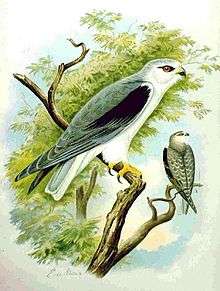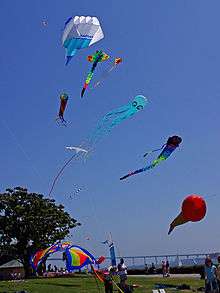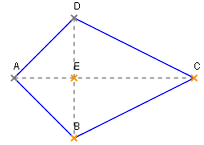- Albanian: qift (sq)
- Arabic: طَائِرَة وَرَقِيَّة f (ṭāʾira waraqiyya)
- Egyptian Arabic: طيارة ورق f (ṭayaara waraʔ)
- Armenian: օդապարուկ (hy) (ōdaparuk)
- Basque: kometa (eu)
- Belarusian: паве́траны змей m (pavjétrany zmjej), змей m (zmjej)
- Bulgarian: хвърчило (bg) n (hvǎrčilo)
- Burmese: စွန် (my) (cwan)
- Catalan: estel (ca)
- Chinese:
- Cantonese: 風箏, 风筝 (fung1 zang1), 紙鷂, 纸鹞 (zi2 jiu6⁻2)
- Hakka: 紙鷂仔, 纸鹞仔 (chṳ́-yeu-é)
- Mandarin: 風箏 (zh), 风筝 (zh) (fēngzhēng), 紙鳶 (zh), 纸鸢 (zh) (zhǐyuān), 鷂子 (zh), 鹞子 (zh) (yàozi), 風槎, 风槎 (fēngchá), 風鳶 (zh), 风鸢 (zh) (fēngyuān)
- Min Nan: 風吹 (zh-min-nan), 风吹 (hong-chhoe, hong-chhe), 風箏 (zh-min-nan), 风筝 (hong-cheng), 狂吹 (kông-chhoe, kông-chhe), 響弓, 响弓 (hiáng-keng, hióng-keng), 籐牛, 藤牛 (tîn-gû)
- Czech: drak (cs) m
- Danish: drage (da)
- Dutch: vlieger (nl)
- Esperanto: kajto
- Faroese: dreki m
- Finnish: leija (fi)
- French: cerf-volant (fr) m
- Georgian: ქაღალდის ფრანი (kaɣaldis prani)
- German: Drachen (de) m
- Greek: χαρταετός (el) m (chartaetós)
- Hebrew: עפיפון (he) m (afifón)
- Hindi: पतंग (hi) f (pataṅga)
- Hungarian: sárkány (hu)
- Icelandic: flugdreki m
- Indonesian: layang-layang (id), layangan (id)
- Irish: eitleog f
- Italian: aquilone (it) m
- Japanese: 凧 (ja) (たこ, tako)
- Kannada: ಗಾಳಿಪಟ (kn) (gāḷipaṭa)
- Khmer: ខ្លែង (km) (klaeng), ខ្លែងព្នង (klaeng pnɔɔng)
- Korean: 연 (ko) (yeon)
- Lao:
- Latvian: pūķis (lv) m
|
|
- Lithuanian: aitvaras (lt) m
- Macedonian: змеј m (zmej)
- Malay: layang-layang
- Malayalam: പട്ടം (ml) (paṭṭaṃ)
- Maori: manu tukutuku, pākau, taratahi, manu (mi), manu aute, tārehurehu
- Mongolian: цаасан шувуу (tsaasan šuvuu)
- Ngazidja Comorian: tiara
- Persian: بادبادک (fa) (bâdbâdak)
- Polish: latawiec (pl) m
- Portuguese: papagaio (pt) m, pipa (pt) f (Brazil), pandorga (pt) f (Southern Brazil)
- Romanian: zmeu (ro) n
- Russian: возду́шный змей (ru) m (vozdúšnyj zmej) (literally, air dragon), змей (ru) m (zmej)
- Scottish Gaelic: iteileag f
- Serbo-Croatian:
- Cyrillic: змај m
- Roman: zmaj (sh) m
- Slovak: drak (sk) m
- Slovene: zmaj (sl) m
- Spanish: cometa (es) f (especially Spain, Colombia, Ecuador, Panama, Peru, Uruguay), barrilete m (Argentina, Guatemala, Nicaragua), cachirulo (es) m (Eastern Central Spain), chichigua f (Dominican Republic), chiringa f (Puerto Rico), lechuza (es) f (Nicaragua), pandero (es) m (Southern Spain), pandorga f (Southern Spain, Paraguay, Northeastern and Northern Central Argentina, Western Uruguay), papagayo (es) m (Venezuela, Southeastern Mexico), papalote (es) m (Costa Rica, Cuba, Mexico), papelote m (Honduras), petaca (es) f (Northwestern Venezuela), piscucha f (El Salvador), volador (es) m (Bolivia, Eastern Venezuela), volantín (es) m (Chile, Cuba, Central and Eastern Bolivia, Western Central and Northwestern Argentina, Northwestern Venezuela, Western Puerto Rico)
- Swedish: drake (sv) c
- Tagalog: saranggola
- Tamil: காத்தாடி (kāttāṭi)
- Telugu: గాలిపటం (te) (gālipaṭaṃ)
- Thai: ว่าว (th) (wâao)
- Turkish: uçurtma (tr)
- Ukrainian: повітряний змій m (povitrjanyj zmij), змій m (zmij)
- Urdu: پتنگ f (pataṅga)
- Vietnamese: diều (vi)
- Volapük: papüradrak, drak (vo), (older term) pöpadlak
- Waray-Waray: banug-banog
|



 Kite_(bird) on Wikipedia.Wikipedia
Kite_(bird) on Wikipedia.Wikipedia
 Kite_flying on Wikipedia.Wikipedia
Kite_flying on Wikipedia.Wikipedia
 Geometric_kite on Wikipedia.Wikipedia
Geometric_kite on Wikipedia.Wikipedia